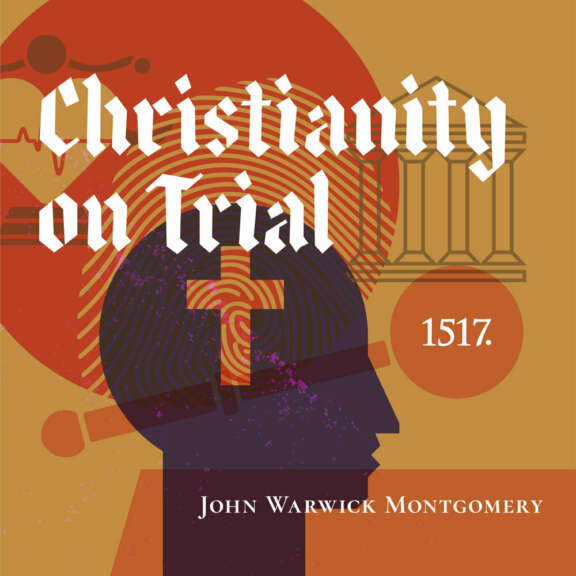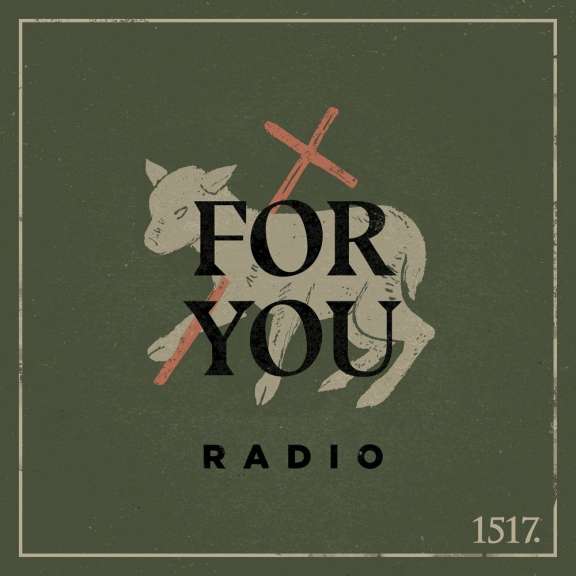Riley and Gillespie take a break from the usual format to consider how our nation quickly forgot COVID-19 in the wake of the death of George Floyd. We seek to better understand what is happening regarding the protests and rioting, how it affects the Church, and how Christians might respond.
Podcasts
Each 1517 Podcast is dedicated to delivering Christ-centered content through weekly, monthly, and seasonal audio platforms. Listen online or on your favorite podcasting app.
Author
- All Authors
- Aaron Zimmerman
- Adam Francisco
- Amy Mantravadi
- Blake Flattley
- Bob Hiller
- Bradley Gray
- Brian W. Thomas
- Bror Erickson
- Bruce Hillman
- Caleb Keith
- Chad Bird
- Chris Rosebrough
- Christopher Gillespie
- Cindy Koch
- Craig Donofrio
- Dan van Voorhis
- Daniel Deen
- Daniel Emery Price
- Darrin Sheek
- David Andersen
- David Rufner
- David Zahl
- Debi Winrich
- Delwyn Campbell
- Donavon Riley
- Doug Klembara
- Edward Killian
- Elyse Fitzpatrick
- Erick Sorensen
- Flame
- Grant Klembara
- Gretchen Ronnevik
- Haroldo Camacho
- Jacob Smith
- Jared C. Wilson
- Jeff Mallinson
- Jeffrey Pulse
- Jessica Thompson
- Jim Nestingen
- Joel Fitzpatrick
- Joel Hess
- John Andrew Schreiner
- John Bombaro
- John T. Pless
- John W. Hoyum
- John Warwick Montgomery
- Katie Koplin
- Kelsi Klembara
- Ken Sundet Jones
- Magnus Persson
- Mark Mattes
- Matt Popovits
- Michael Berg
- Michael Horton
- Nick Lannon
- Paul Koch
- Peter Nafzger
- Philip Bartelt
- Raleigh Sadler
- RJ Grunewald
- Robert Kolb
- Rod Rosenbladt
- Ron Hodel
- Sam Leanza Ortiz
- Sarah Condon
- Sarah Crowder
- Scott Davis
- Scott Keith
- Steven Paulson
- Tanner Olson
- Troy Neujahr
- Uwe Siemon-Netto
- Wade Johnston
- William Cwirla
-
Welcome to Christianity on Trial, where the claims of Christianity are examined and judged by the rules of evidence as used in the court of law. Your host, Dr. John Warwick Montgomery, is a lawyer, a theologian, an author, and an accomplished defender of biblical Christianity. He is no stranger to the rules of evidence or the courtroom. So with our skeptical world for the prosecution and Dr. John Warwick Montgomery for the defense, stay with us as we listen in on Christianity on Trial.
-
Paul's genesis as an apostle is established by Christ, not by man. Therefore, the gospel Paul preaches can be trusted to be the gospel of Jesus Christ.
-
Welcome to Christianity on Trial, where the claims of Christianity are examined and judged by the rules of evidence as used in the court of law. Your host, Dr. John Warwick Montgomery, is a lawyer, a theologian, an author, and an accomplished defender of biblical Christianity. He is no stranger to the rules of evidence or the courtroom. So with our skeptical world for the prosecution and Dr. John Warwick Montgomery for the defense, stay with us as we listen in on Christianity on Trial.
-
As Craig and Troy crack open the book of Galatians, Saul the Christ-hater becomes Paul the one sent by Christ. He knows what gospel is, so why have the Galatians forgotten?
-
Welcome to Christianity on Trial, where the claims of Christianity are examined and judged by the rules of evidence as used in the court of law. Your host, Dr. John Warwick Montgomery, is a lawyer, a theologian, an author, and an accomplished defender of biblical Christianity. He is no stranger to the rules of evidence or the courtroom. So with our skeptical world for the prosecution and Dr. John Warwick Montgomery for the defense, stay with us as we listen in on Christianity on Trial.
-
Welcome to Christianity on Trial, where the claims of Christianity are examined and judged by the rules of evidence as used in the court of law. Your host, Dr. John Warwick Montgomery, is a lawyer, a theologian, an author, and an accomplished defender of biblical Christianity. He is no stranger to the rules of evidence or the courtroom. So with our skeptical world for the prosecution and Dr. John Warwick Montgomery for the defense, stay with us as we listen in on Christianity on Trial.
-
In this case, "apology" means never having to say "I'm sorry." Dr. Scott Keith and Caleb Keith of 1517.org and The Thinking Fellows podcast join Craig and Troy as they discuss defending the authority of Scripture.
-
Don't let people convince you that staying home is heroic. Unless of course you are listening to Ringside while staying home! Than you, my friend, are an Erol Flynn! Luther on the Resurrection.
-
Welcome to Christianity on Trial, where the claims of Christianity are examined and judged by the rules of evidence as used in the court of law. Your host, Dr. John Warwick Montgomery, is a lawyer, a theologian, an author, and an accomplished defender of biblical Christianity. He is no stranger to the rules of evidence or the courtroom. So with our skeptical world for the prosecution and Dr. John Warwick Montgomery for the defense, stay with us as we listen in on Christianity on Trial.
-
Welcome to Christianity on Trial, where the claims of Christianity are examined and judged by the rules of evidence as used in the court of law. Your host, Dr. John Warwick Montgomery, is a lawyer, a theologian, an author, and an accomplished defender of biblical Christianity. He is no stranger to the rules of evidence or the courtroom. So with our skeptical world for the prosecution and Dr. John Warwick Montgomery for the defense, stay with us as we listen in on Christianity on Trial.
-
Christ is Risen! So stop being a wuss. Get up and Go out! It will be ok. But first take a listen to the boys in black - Ringside Preachers


